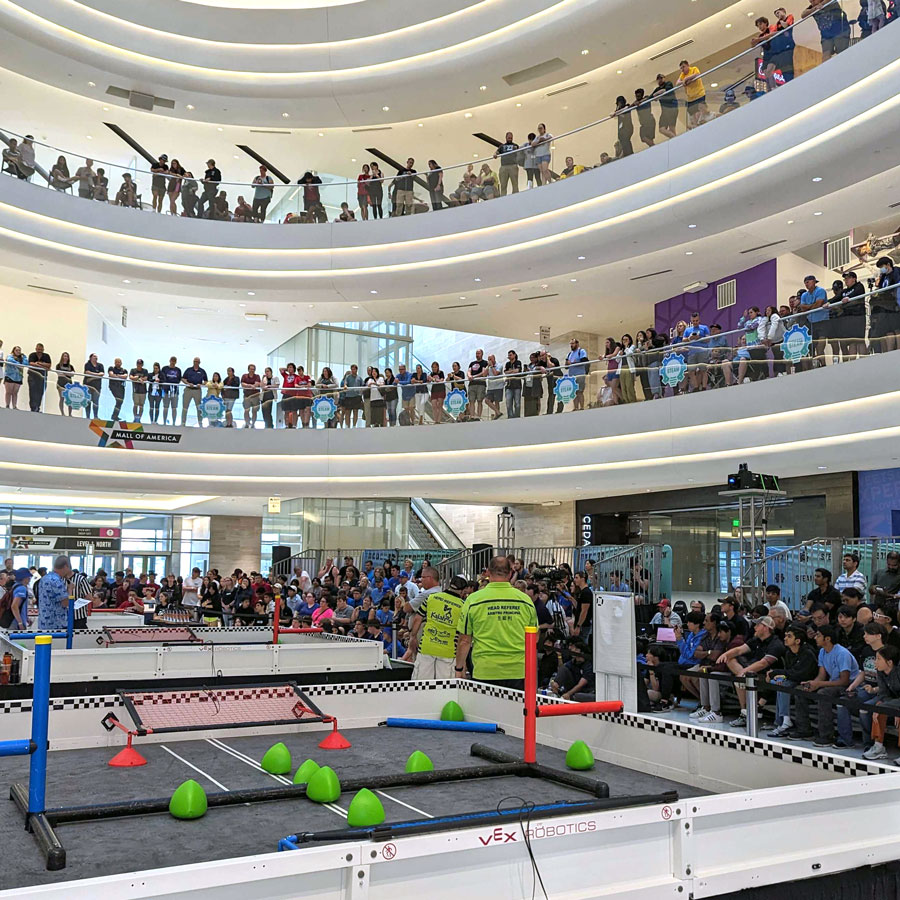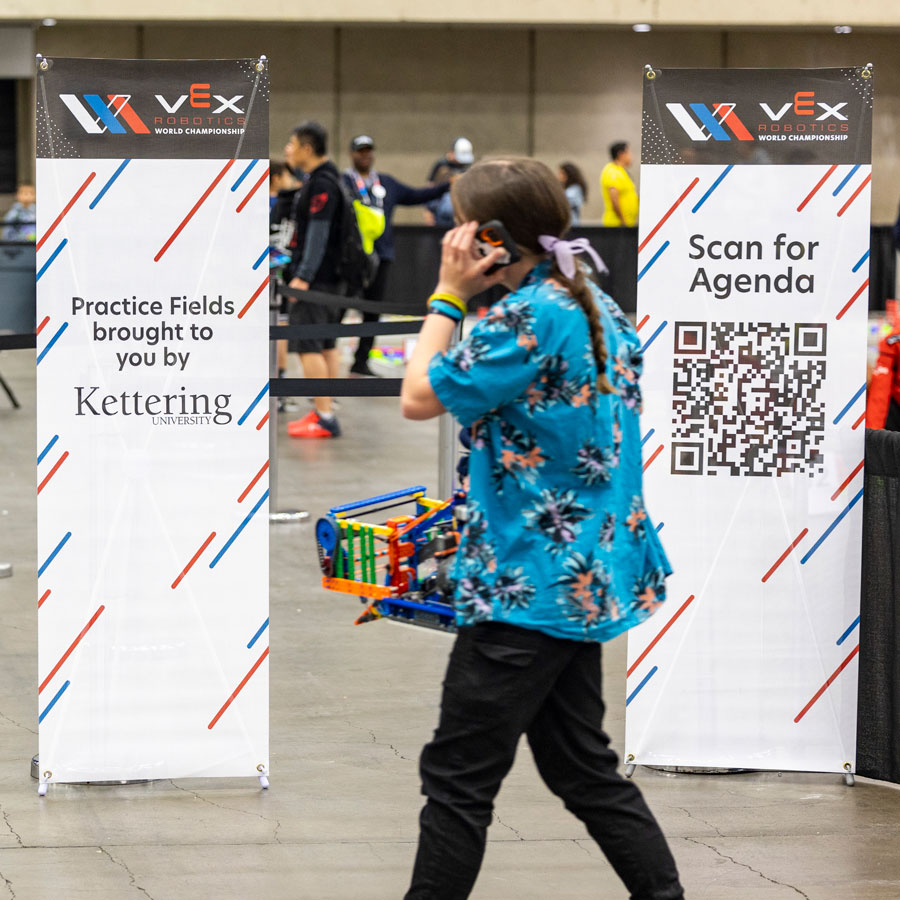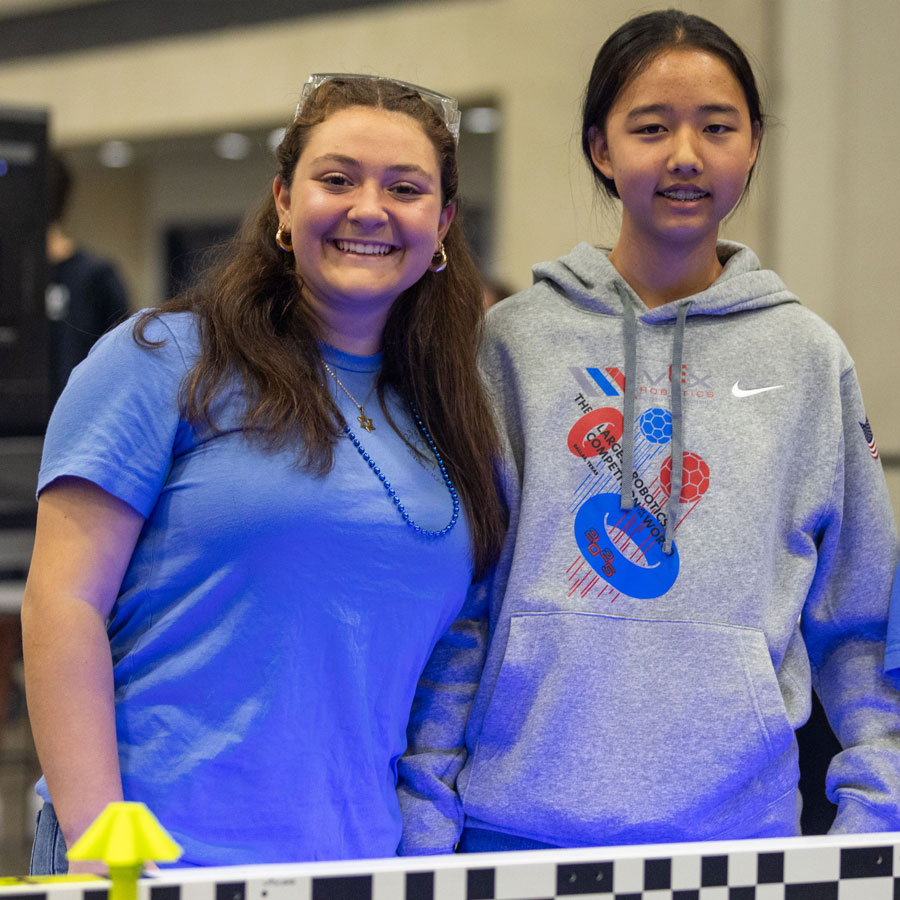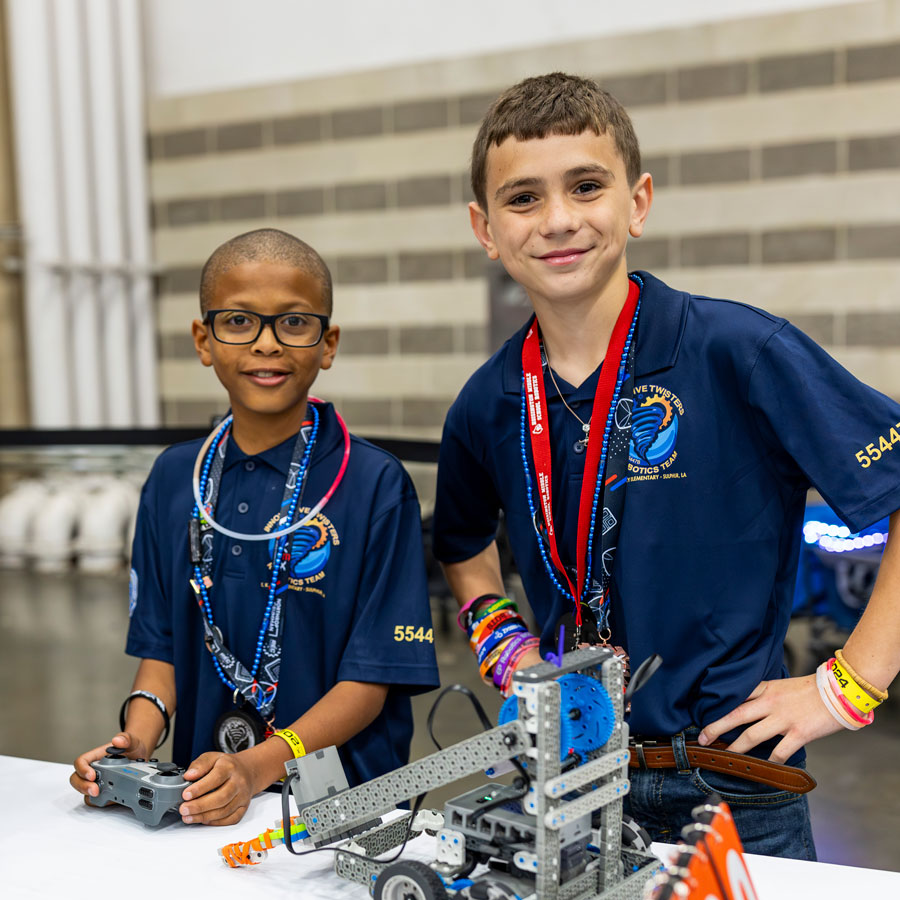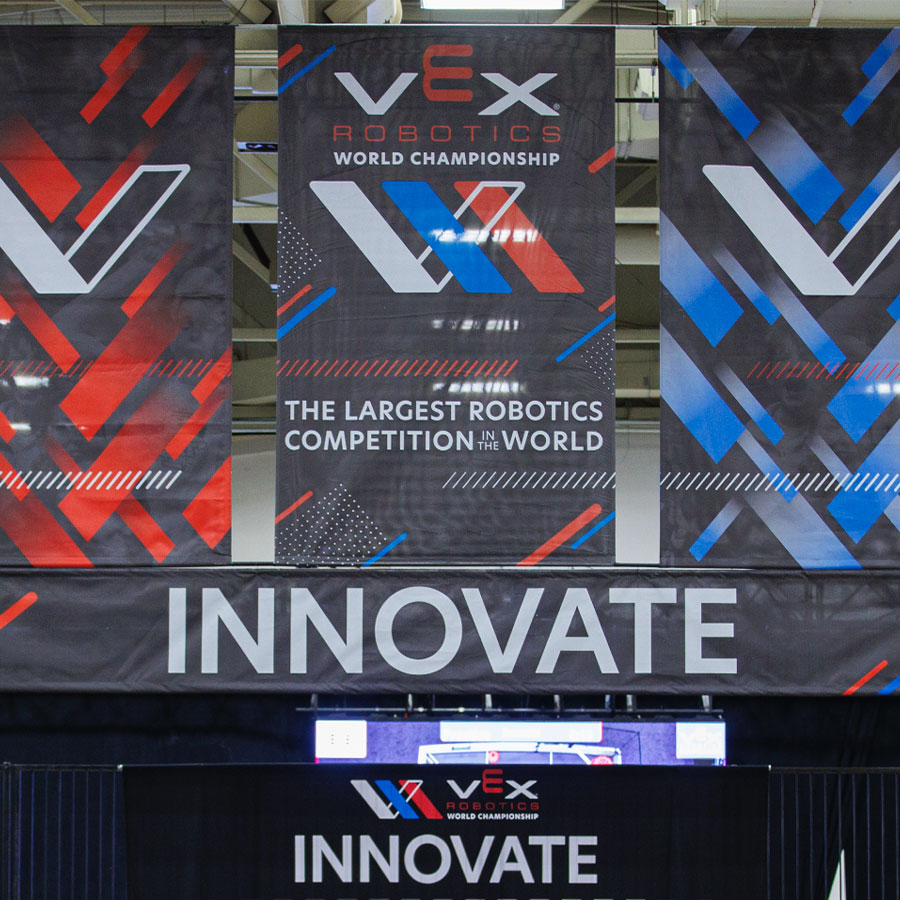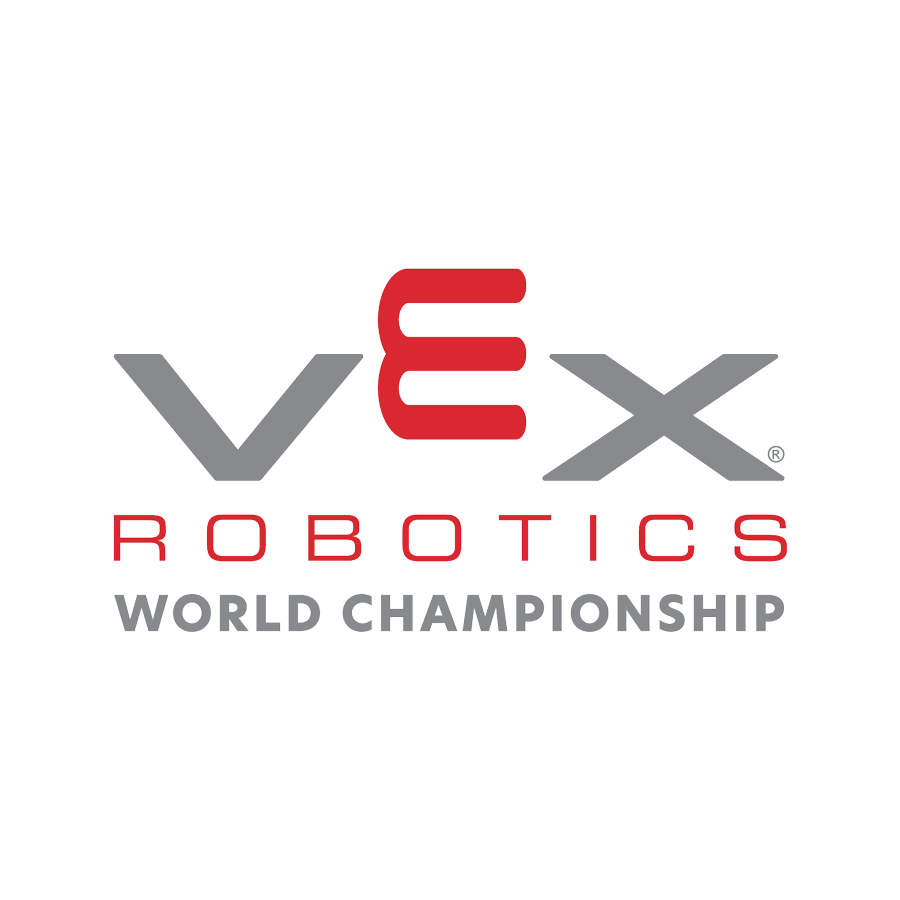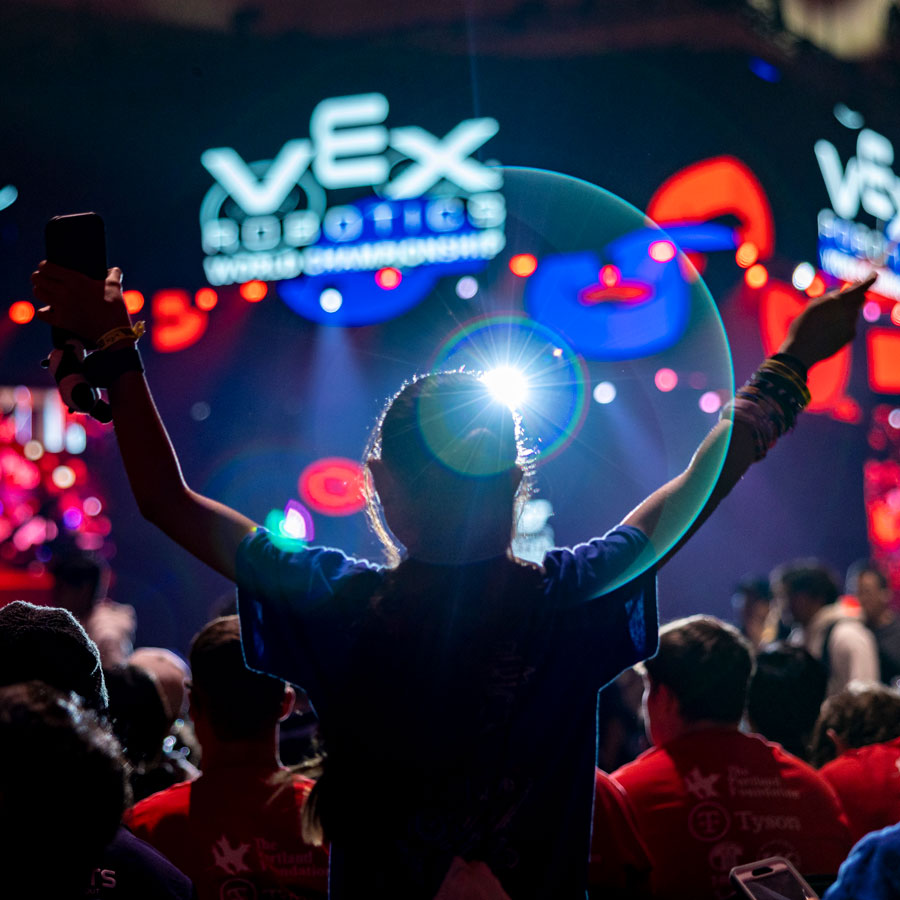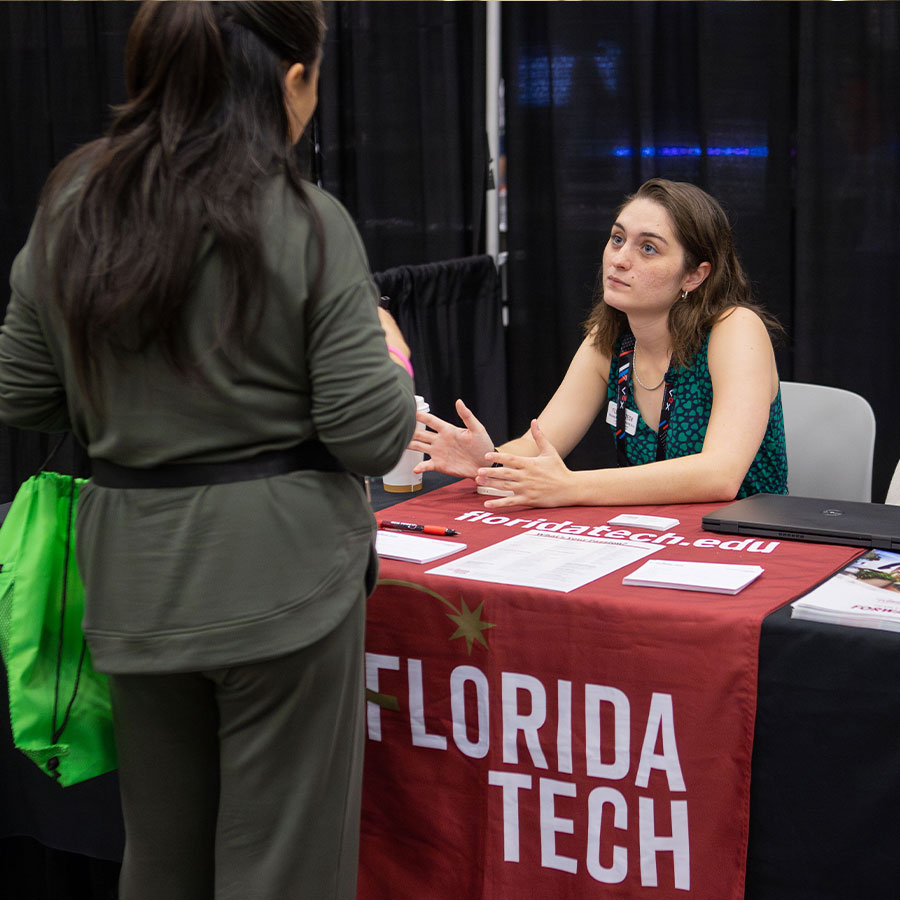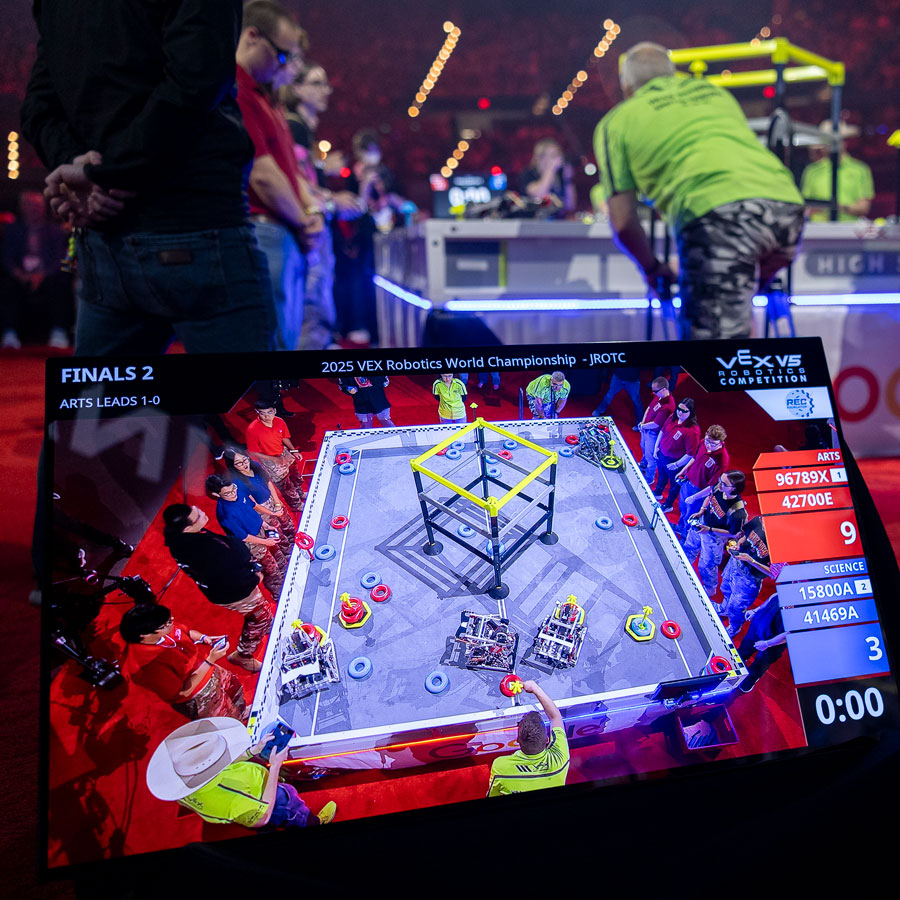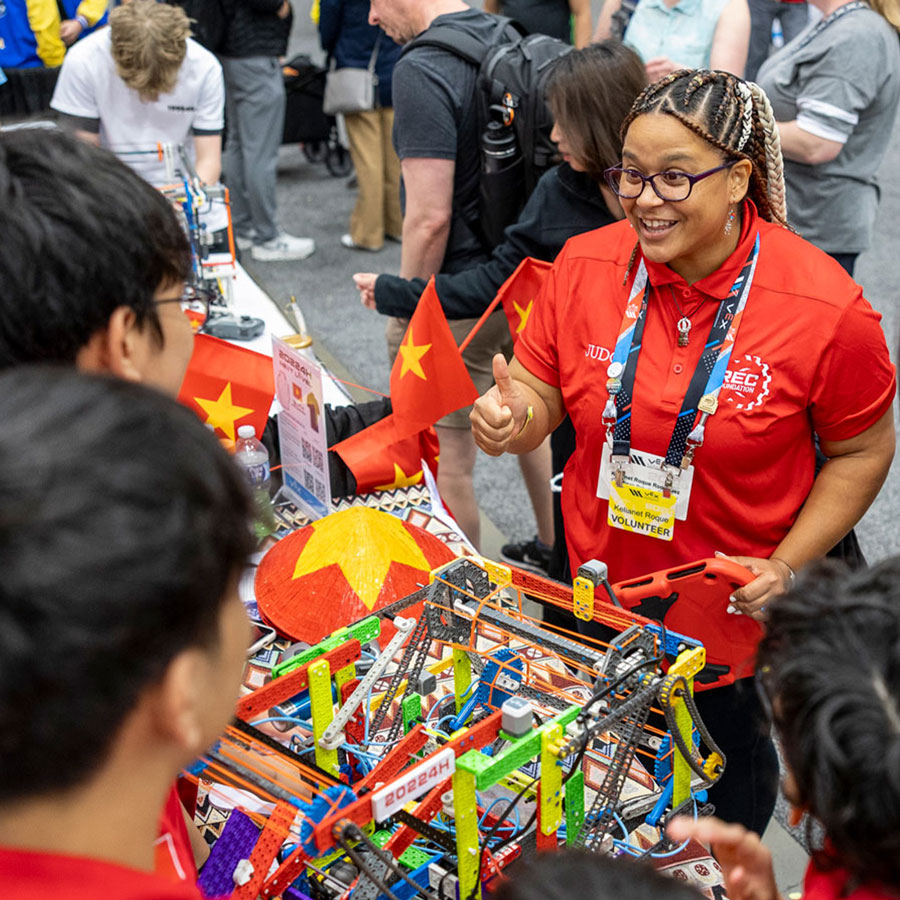
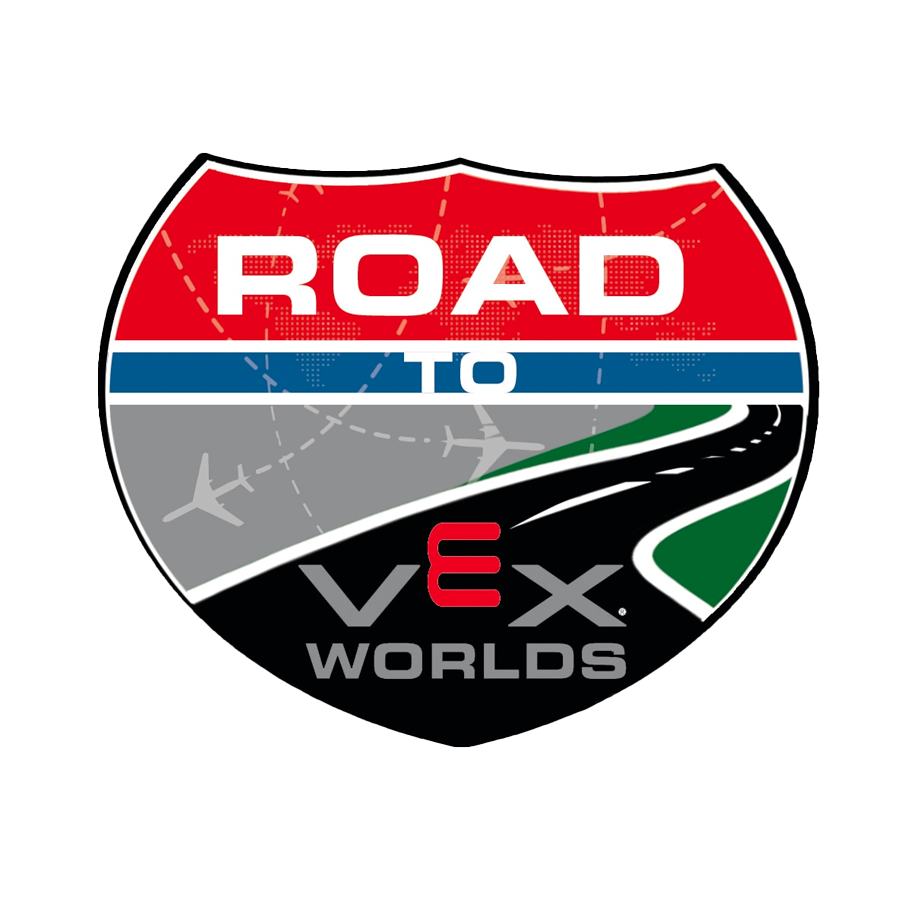
Road to VEX Worlds is a weekly series featuring teams on their path to Louisville, Kentucky, on April 20-23, 2016, to compete with 1,000 teams from nearly 30 countries under one roof for one epic celebration as we crown the World Champions!
At VEX Worlds 2015, Team 2148A, Gigabots from Greenville Middle School in Greenville, Texas, took home the Design Award. The team is off to a strong start, this season, winning six tournaments and three judged awards–Think, Build, and Design.
The team will attempt to qualify for VEX Worlds 2016 on February 27 at the North Texas VEX Nothing But Net Middle School Regional Championship in Greenville. We recently spoke to the team about their season so far, how they got started in robotics, and where they see themselves in the future.
REC FOUNDATION: How did you get involved in robotics?
DANIEL: My fifth grade teacher took me to Worlds. It was awesome, so I just kept on doing it.
ALEXANDER: I started in fifth grade. I realized that I enjoyed it, so I went on to VEX IQ, and V5RC.
LUIS: I got interested in it, so first I joined Mindstorm and then got promoted to join VEX IQ. After three years, I joined V5RC, which I really like.
JOSH: In seventh grade, I was in a VEX IQ developmental class, but when a student dropped out of the program, I moved into V5RC robotics.
AUSTIN: I got into robotics because I wanted to learn more about engineering and I wanted to challenge myself.
REC FOUNDATION: What are some of the biggest challenges this year?
DANIEL: Building the robot, we were having lots of problems. It was a challenge to problem solve and fix the issues.
AUSTIN: How to get a fast shooter and how to make it consistent.
JOSH: Creating a robot that shoots, not only quickly, but also accurately. Also, one of the challenges faced by our team is to constantly improve our autonomous program to score more points.
LUIS: We really struggled on getting our shooting mechanism to work properly. But for me, I struggled getting our engineering notebook to look well-organized and detailed.
ALEXANDER: One of the biggest challenges is building a shooter that shoots accurately and rapidly. A personal challenge is writing in the notebook every day with great detail.
REC FOUNDATION: What does it take to put together a good Engineering Notebook?
ALEXANDER: Every team member has to contribute, whether it be writing or suggesting feedback
LUIS: It takes a lot of cooperation. We all contribute to the notebook some way or the other. Like me asking them what problem we have or what did we do to solve the problem?
REC FOUNDATION: What makes your team special?
JOSH: We have a diverse group of students that can do it all. For example, I am a programmer, but Austin and I both have driving experience. Daniel is an amazing builder, and Alex and Luis are both journalists.
LUIS: We come up with a plan, even in our most difficult situations. For example, in tournaments, we plan out strategy with our alliance so we know what to do to win.
REC FOUNDATION: What makes the team members on your team different from others?
ALEXANDER: We’re passionate about what we do. We share the love of robotics. We all cooperate with each other.
DANIEL: We are all eighth graders, and we all have two years of VEX experience.
AUSTIN: We don’t argue, and we get along well.
REC FOUNDATION: What is one important lesson you have learned from being part of a robotics team?
LUIS: That no matter what, we always come up to a solution to every problem we face as a team.
DANIEL: I learned not to get so confident. It can be a weakness and affect your team’s performance.
AUSTIN: You won’t make it anywhere without getting along with your teammates.
ALEXANDER: You can`t accomplish anything without working together. Your team will help no matter what you’re working on.
JOSH: You can never do it all on your own; it requires teamwork and dedication to get the job done.
REC FOUNDATION: What are your other interests and what do you like about them?
AUSTIN: Math, because I really like to challenge myself.
DANIEL: History and math, because I like learning about the history of the world and math is a fun subject.
ALEXANDER: Art and math. In art you get to express yourself and I like math because I like to challenge myself.
JOSH: Origami, the art of folding paper. I love to see a simple sheet of paper become something magnificent.
LUIS: I have always liked to draw and doodle and that is why I’m the artist of the team. If my team asks me to draw something, I’ll gladly do it for them since art is my other talent.
REC FOUNDATION: What are some of your favorite moments so far in your robotics experience?
ALEXANDER: We go to tournaments and get to talk with other teams and look at different robots.
AUSTIN: Last year I won state and US Open, this year we won six tournaments in a row.
DANIEL: One of my favorite experiences was Worlds at Disneyland in fifth grade.
LUIS: Three years ago, my team and I went to Anaheim, California, for a competition. While we were there, we went to Disneyland. That motivated me to try my best in robotics.
JOSH: By far one of my favorite moments was when we won our fourth consecutive tournament, beating the previous Gigabots record.
REC FOUNDATION: What changes do you plan to make on your robot or to your overall strategy before the next event?
AUSTIN: For one, we need to fix our intake and we also need a better autonomous.
DANIEL: The intake is snapping in between matches and another problem we have is our ramps.
JOSH: We hope to improve our robot by fixing our ramps and modifying our intake so the chain doesn’t break.
REC FOUNDATION: How has the involvement with robotics influenced your career path?
JOSH: When I was in elementary school, I didn’t know what I wanted to do as a career, but now I know that I want to become an engineer for the U.S. Navy.
ALEXANDER: Before robotics, I did not know what I wanted to do in life. Now that I have been in robotics for some time, I want to become an engineer.
DANIEL: Robotics has influenced me to want to go into engineering. I want to work for L-3 after I graduate.
LUIS: Robotics has helped me choose a career. I plan on becoming an engineer or doctor.
AUSTIN: I want to program and test new video games.
